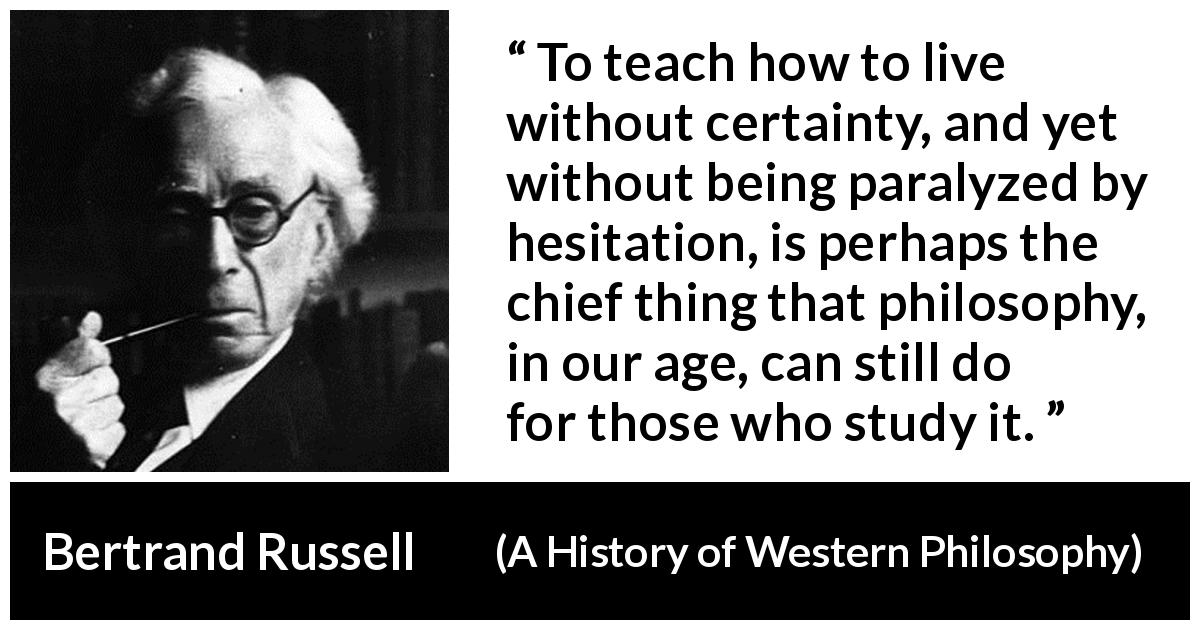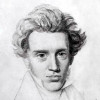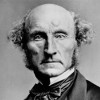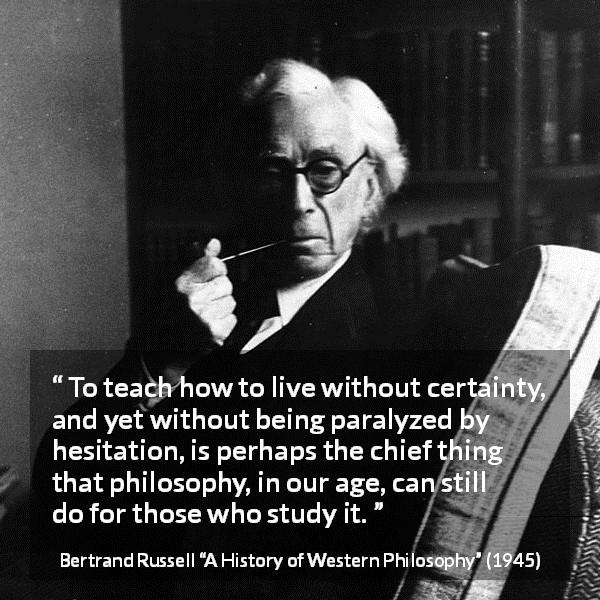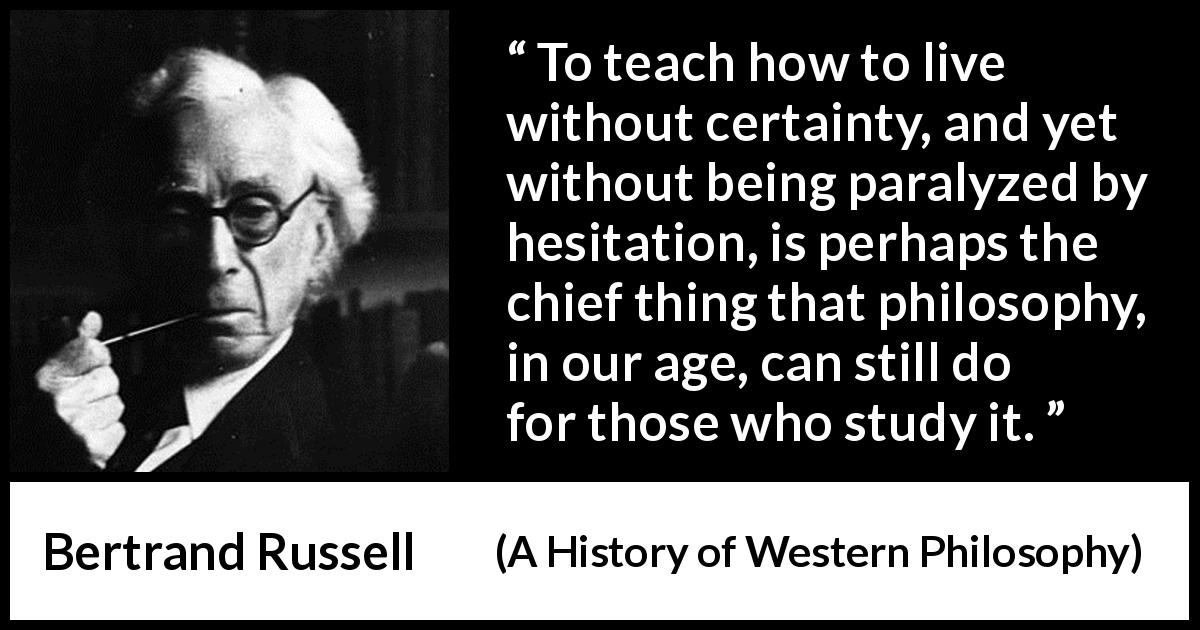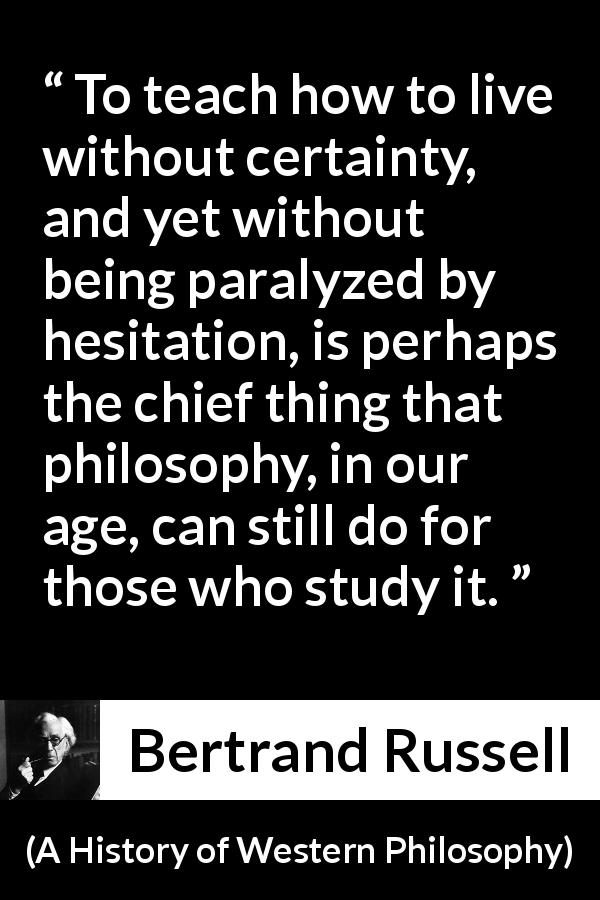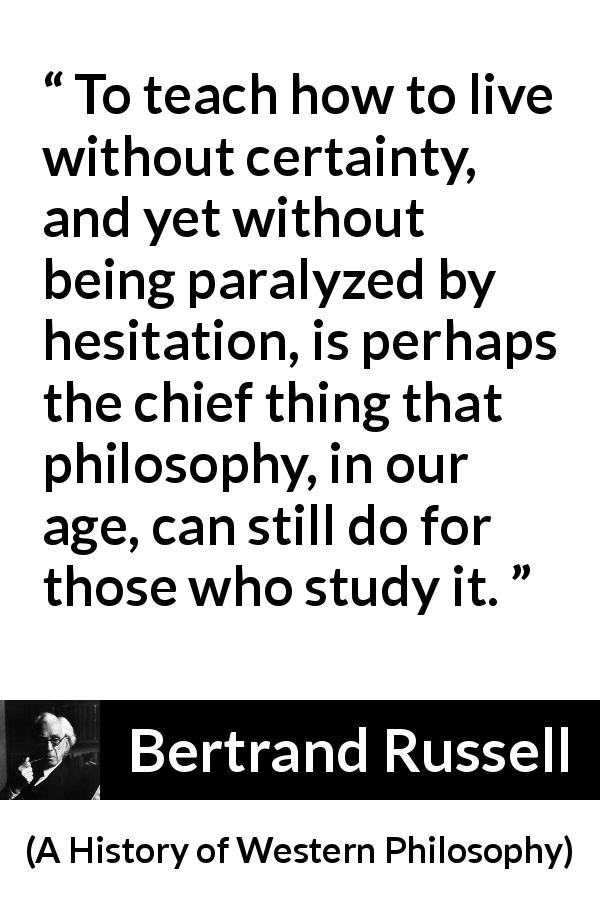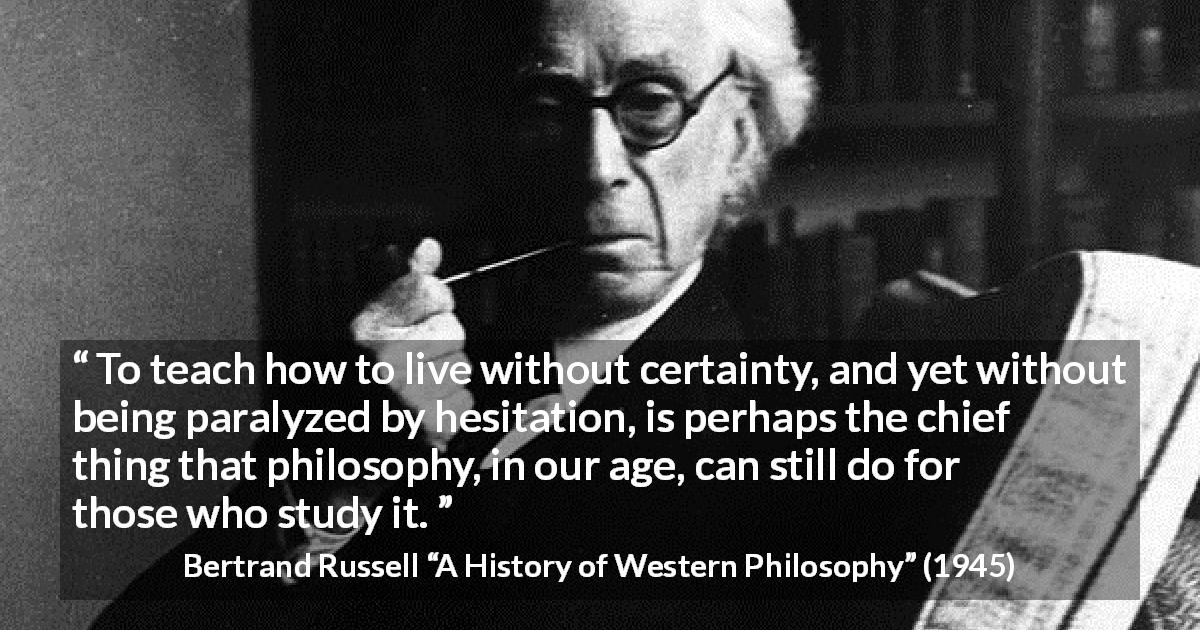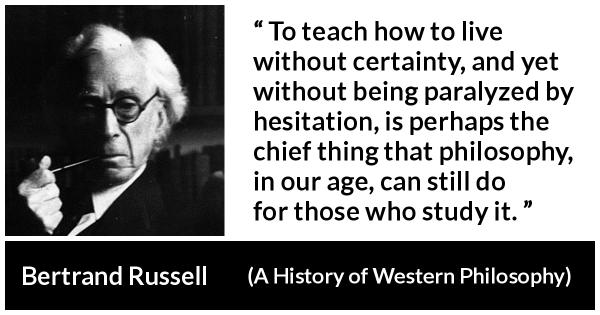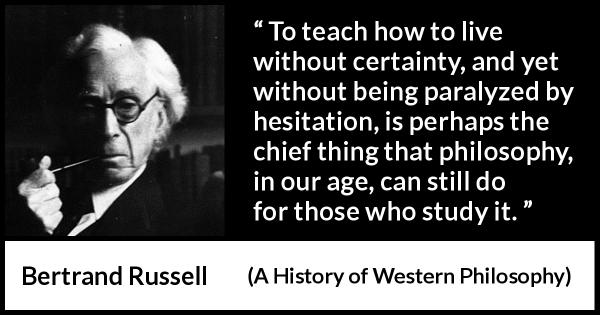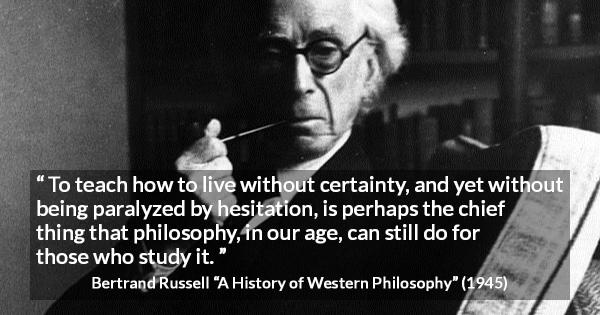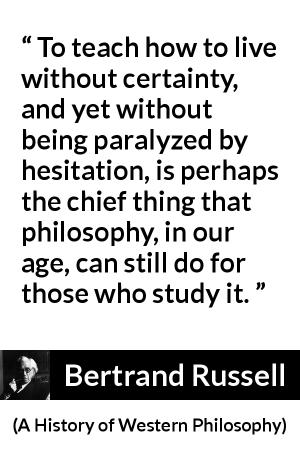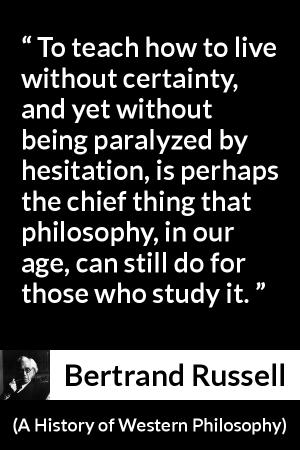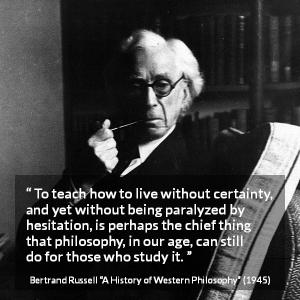“ To teach how to live without certainty, and yet without being paralyzed by hesitation, is perhaps the chief thing that philosophy, in our age, can still do for those who study it. ”
Bertrand Russell, A History of Western Philosophy (1945). copy citation
| Author | Bertrand Russell |
|---|---|
| Source | A History of Western Philosophy |
| Topic | uncertainty philosophy living |
| Date | 1945 |
| Language | English |
| Reference | |
| Note | |
| Weblink | http://www.ntslibrary.com/PDF%20Books/History%20of%20Western%20Philosoph... |
Context
“Uncertainty, in the presence of vivid hopes and fears, is painful, but must be endured if we wish to live without the support of comforting fairy tales. It is not good either to forget the questions that philosophy asks, or to persuade ourselves that we have found indubitable answers to them. To teach how to live without certainty, and yet without being paralyzed by hesitation, is perhaps the chief thing that philosophy, in our age, can still do for those who study it.
Philosophy, as distinct from theology, began in Greece in the sixth century B.C. After running its course in antiquity, it was again submerged by theology as Christianity rose and Rome fell. Its second great period, from the eleventh to the fourteenth centuries, was dominated by the Catholic Church, except for a few great rebels, such as the Emperor Frederick II (1195-1250).” source
Philosophy, as distinct from theology, began in Greece in the sixth century B.C. After running its course in antiquity, it was again submerged by theology as Christianity rose and Rome fell. Its second great period, from the eleventh to the fourteenth centuries, was dominated by the Catholic Church, except for a few great rebels, such as the Emperor Frederick II (1195-1250).” source
